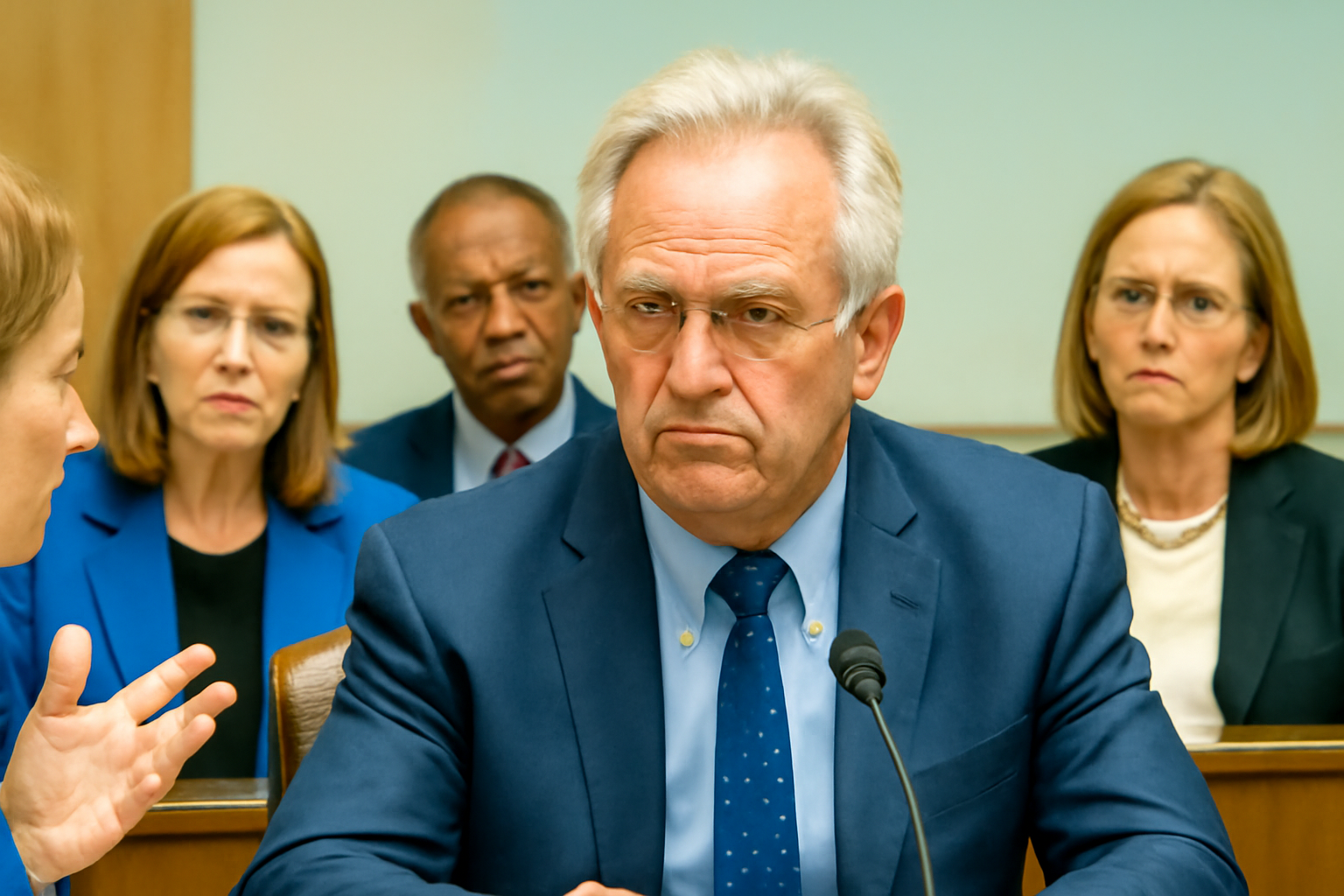
In a recent Senate hearing, Robert F. Kennedy Jr. faced intense questioning from several senators regarding his controversial views on AIDS, which many experts have thoroughly discredited. Kennedy, known for his outspoken and often controversial stances on various health issues, found himself at the center of a heated discussion that scrutinized both his scientific credibility and the potential impact of his statements on public health.
During the hearing, Kennedy was asked to clarify his position on AIDS, a disease that has been the subject of rigorous scientific study for decades. Senators expressed concerns over Kennedy’s previous claims that have contradicted the established consensus on how HIV causes AIDS and the effectiveness of antiretroviral therapy.
The History of AIDS Theories
AIDS, or Acquired Immunodeficiency Syndrome, is a life-threatening condition caused by the human immunodeficiency virus (HIV). Since the early 1980s, scientists have dedicated immense effort to understanding and combating this disease. Through extensive research, the medical community has developed treatments that have significantly improved the quality of life for many living with HIV, transforming what was once a fatal diagnosis into a manageable chronic condition.
Despite this progress, various alternative theories about AIDS have emerged over the years, often fueled by misinformation and misinterpretation of scientific data. These theories have sometimes gained traction, influencing public perceptions and, in some cases, public policy. However, the overwhelming consensus among scientists is that HIV is indeed the cause of AIDS, and antiretroviral therapy is both safe and effective.
RFK Jr.'s Stance
Robert F. Kennedy Jr. has been a prominent figure in the sphere of health debates, often challenging consensus views. His statements on AIDS have been particularly contentious, drawing criticism from both the scientific community and public health advocates. During the Senate hearing, Kennedy reiterated his skepticism of mainstream AIDS science, which prompted a strong response from senators committed to ensuring accurate health information is disseminated to the public.
One senator remarked, "It is vital that we rely on well-established science to guide our health policies. The theories you've promoted, Mr. Kennedy, undermine decades of research and the hard-won progress we have achieved in fighting this disease." This sentiment was echoed by others who emphasized the importance of basing public health decisions on solid scientific evidence.
Impact on Public Perception
The spread of misinformation about AIDS has tangible consequences. Health experts warn that skepticism fueled by unfounded theories can lead individuals to avoid proven treatments and engage in risky behaviors, potentially exacerbating the spread of the virus. The Senate hearing underscored the role that public figures play in shaping health discourse and the responsibility they carry to promote accurate information.
Advocates for individuals living with HIV/AIDS also voiced their concerns during the hearing. One activist stated, "We have come so far in our fight against HIV/AIDS. It is disheartening to see public figures cast doubt on the very science that has saved countless lives. We must continue to prioritize education and awareness to combat stigma and misinformation."
Looking Forward
The Senate hearing highlighted the ongoing challenge of addressing misinformation in an age where ideas, regardless of their validity, can spread rapidly online. Senators concluded the session by reaffirming their commitment to supporting scientific research and the dissemination of evidence-based information.
As public discourse continues to evolve, the importance of critical thinking and reliance on credible sources remains paramount. The Senate's engagement with RFK Jr.'s controversial views serves as a reminder of the crucial role legislators and public figures play in safeguarding public health. It underscores the need for vigilance in the face of misinformation and reinforces the value of scientific integrity in policy-making.
Related Posts
Triumphant Trans Woman Wins Legal Battle and Inspires Others to Stand Up for Their Rights
Breaking new ground: a landmark victory in transgender rights After battling in courtrooms and enduring endless challenges, Diana Portillo, a transgender woman, has secured a monumental victory in her decade-long fight against workplace discrimination. The result? Nearly $1 million awarded in a historic settlement. But this isn't just a win on paper—it represents a powerful precedent in combati [...]
Pride Month in Latin America: Protests and Demands for Equality
**Celebrating Pride and advocating LGBTQ+ rights in Latin America** Pride Month in Latin America was a lively mix where celebration met activism. Communities united, not just throwing a party but making a stand—demanding equality and pushing governments toward better protection and rights recognition. Throughout Latin America, pride events erupted in marches and cultural displays, each with a c [...]
Transgender Erasure Actions Implemented by National Park Service
```html Trump administration's impact on national park service and transgender recognition The Trump administration made notable moves in undermining transgender representation, which included directing agencies like National Park Service not include "T" and "Q" when they refered “LGBTQ” in any official communication. This move seems part a broader plan by this administration aimed at reducin [...]